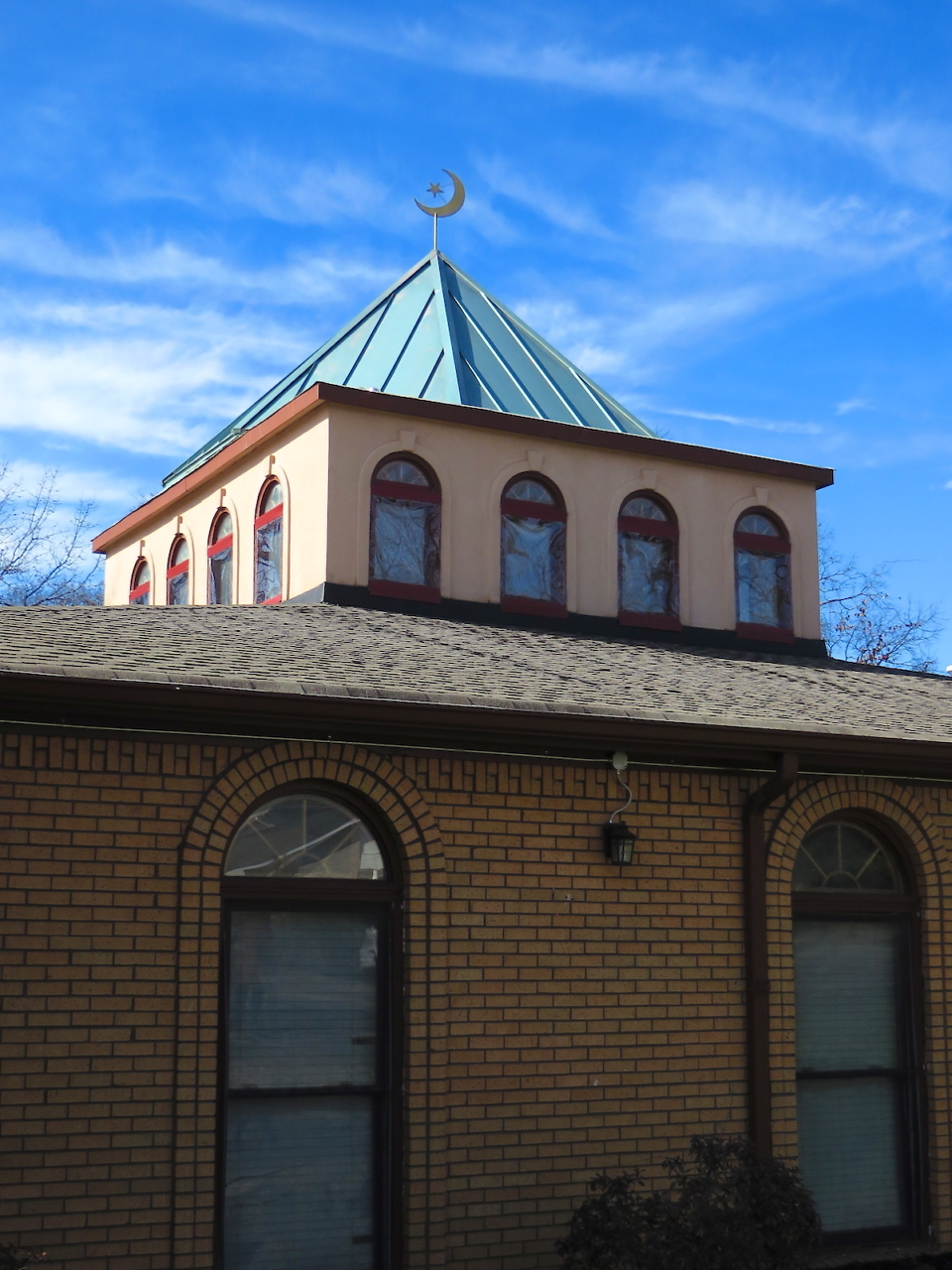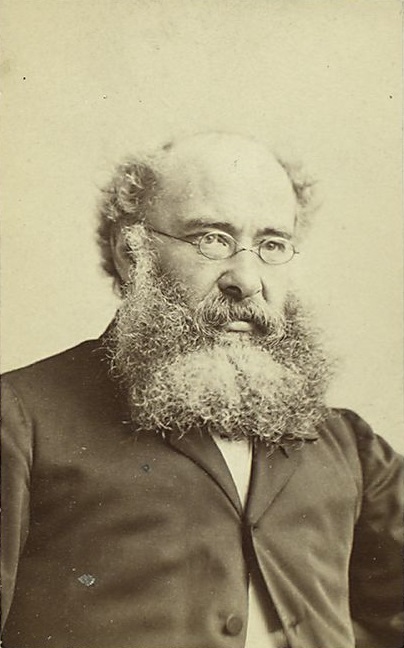Three-Day Business Trip
A life-changing journey
*FROM THE CHAPTER 16 ARCHIVE: This essay, chosen as one of the winners of the inaugural Tennessee True Stories Essay Contest, originally appeared on January 31, 2020.
***
Chapter 16 is pleased to publish the winners in our Tennessee True Stories Essay Contest. Regarding Mirsad Kulovic’s winning essay, contest judge Mary Laura Philpott writes:
WOW. I read most of this essay with my hand on my chest and my heart pounding. To convey this disorienting, terrifying experience with such artful restraint is truly remarkable.
I arrived in Zagreb, Croatia, in the evening of Thursday, April 15, 1993 — the first step of a planned three-day business trip. I came to Zagreb to finish a job involving new permits for international passenger transport, and I expected to return home to Bosnia as soon as it was done.
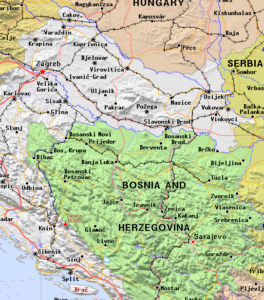 The transportation company, Centrotrans, based in the small town of Kakanj in central Bosnia, needed those permits due to new regulations of transport between Bosnia and Croatia, newly independent countries after the dissolution of Yugoslavia. I was hired temporarily, just for that assignment, which I gladly accepted. For more than a year in war-torn Bosnia I had been jobless. I was outside Sarajevo at the beginning of its siege, and my professor’s job at the University of Sarajevo was taken by another person.
The transportation company, Centrotrans, based in the small town of Kakanj in central Bosnia, needed those permits due to new regulations of transport between Bosnia and Croatia, newly independent countries after the dissolution of Yugoslavia. I was hired temporarily, just for that assignment, which I gladly accepted. For more than a year in war-torn Bosnia I had been jobless. I was outside Sarajevo at the beginning of its siege, and my professor’s job at the University of Sarajevo was taken by another person.
I traveled to Zagreb by bus, an unpredictable and dangerous 26-hour journey. The countless stops and long waits at barricades and checkpoints, set up by different military and paramilitary formations, made the trip six times longer than in peacetime. After many gray, cloudy days and pitch-dark nights without electricity in Bosnia, the brightness of Zagreb fascinated me. There was an enormous amount of light coming to my eyes from everywhere. The city’s street lanterns, shop windows, streetcars, and kiosks all attacked my eyes with light.
I found the hotel room, took a shower, and went to the bed. My thoughts turned to Bosnia, to my wife Sevala and children. I already missed them. It had been very early morning when I left home. The kids were sleeping — son Ismar, 16, and daughters Adviya, 12, and Jasmina, a 3-month-old baby. I went to their rooms and softly kissed them on their cheeks. Beside Adviya’s pillow I saw a piece of paper. I read her handwriting, all in capital letters: “BABO KUPI MI CEDEVITU U ZAGREBU” (“Daddy, buy me a Cedevita in Zagreb”). Cedevita was her favorite multivitamin candy, which came in different fruit flavors. She preferred orange, and she hadn’t had it for a year. “Cedevita is life,” she often sang, imitating the commercial for that candy.
“She was so excited, knowing you are leaving,” Sevala told me. “She stayed awake late last night. I didn’t see when she wrote it.”
I put the paper in the pocket inside my jacket and looked at Sevala. “I should be back on Sunday,” I said.
Sevala drew herself close to me and rested her head against my chest. I hugged her, planted a soft kiss on her cheek, and left.
***
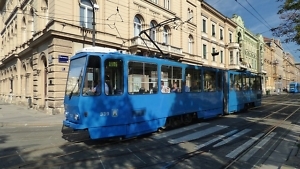
The next morning I got up early and left the hotel room around seven. I took a streetcar and arrived at the Croatian Ministry of Transportation sharply at eight o’clock. My longtime friend Nenad was already there waiting on me. He helped me to fill out the permit application forms. We sorted all the necessary documents, and I turned them over to the Ministry’s receptionist clerk. The clerk gave me a signed receipt and told me that the new permits would be delivered to the company in two weeks.
That’s good, tomorrow I can go back to Bosnia and be with Sevala and kids by Sunday night, I thought.
It was one o’clock in the afternoon when Nenad and I left the Ministry’s building and went for lunch to our favorite restaurant. The restaurant was full, but at a table in the corner, close to the restaurant entrance, I recognized two Bosnian guys, the bus driver and one of passengers from the bus that had brought me to Zagreb. They welcomed us and we joined them.
Just as we sat down at the table, the bus driver asked me, “Do you know that our bus was the last one which came from Bosnia yesterday?”
“No, I do not know, what happened?”
“No single bus came from nor left for Bosnia since yesterday morning,” the driver said. “The fighting between the Bosnian Government Army and Croatian Defense Council forces has just begun. I tried to call my family in Bosnia several times but couldn’t get through. It looks like all lines of communication with Bosnia were shut down.”
I was speechless for a while. Then I said, “Now, we have two wars in Bosnia, one with neighbors from the east, which has been going on for over a year, and one with neighbors from the west, just started. They both want part of Bosnia.”
***
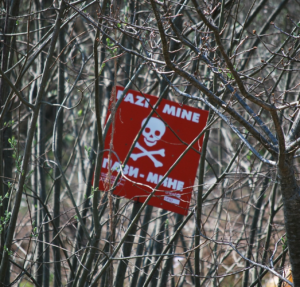
For the next five months I lived in Nenad’s house in a Zagreb suburban neighborhood, waiting on the day I could return to Bosnia. With the passage of time, I almost forgot the reason why I had come. I spent days and days looking for the possibility to call Sevala. I spoke with her four times in five months. My mood changed significantly when I talked with her. The happiness and sadness switched during the conversation. I was glad to hear that she and children were all right. But when she told me she was out of money and alleviating hunger had become the crux of their existence I was stunned, speechless, motionless.
“Everybody here now is thinking only about what to eat, not about bombs and sniper bullets,” she said. “The possibility of death from starvation is what scares me most.”
One day in the middle of July, while walking on the busy Ilica Street, I almost ran into my friend Davor. We knew each other from the Bosnian city Zenica, where we used to work together. I learned that Davor lived in Croatia now, with his parents, and planned to emigrate to America. He had a relative who lived in California. I told him my story.
“Are you thinking to go somewhere?” Davor asked.
“Yes, I’m thinking to go to Bosnia,” I replied.
“I mean, are you thinking to emigrate to another country?”
“No,” I said sharply.
“Ok, but if you change your mind, let me know. I heard the American Refugee Resettlement Agency was recently established here in Zagreb. Now it’s much easier for Bosnian people to get an American permanent visa.”
***
After meeting Davor, another month passed, full of my unsuccessful attempts to find a way to return to Bosnia. During that month I slept very poorly, waking up many times during the night with the echo of the words “death” and “starvation.” One night I woke up at 2 a.m. after a bad dream. In that dream I saw my older daughter Adviya sitting on the couch and tapping her stomach with her hand, telling me “Hey, Dad, I ate so well, I am full.” The rest of that night I didn’t sleep at all, and I decided: Tomorrow I’m going to the American Refugee Agency to apply for immigration.
On Monday morning, August 16, 1993, I was the first visitor to the American Refugee Agency office in Zagreb. I applied for immigration to the United States of America. Due to incredibly fortunate circumstances, my interview with a U.S. immigration officer was scheduled for the same day.
Three weeks after the interview with the immigration officer, I got a letter from the refugee agency. The letter said my immigration to the USA was approved, and departure was scheduled for September 14, 1993. Destination: Cookeville, Tennessee.
Cookeville? Where is it? I couldn’t find it on the map.
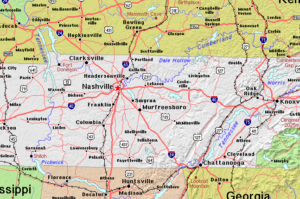 In the library of the American Cultural Center I found basic information on Cookeville. On a hot September’s day, three people were waiting on me at the Nashville International Airport. The youngest person, a student at Tennessee Technological University, was holding a paper in his hand with my name on it. The other two people were professors at the same university and members of the Bosnian Refugees Support Committee.
In the library of the American Cultural Center I found basic information on Cookeville. On a hot September’s day, three people were waiting on me at the Nashville International Airport. The youngest person, a student at Tennessee Technological University, was holding a paper in his hand with my name on it. The other two people were professors at the same university and members of the Bosnian Refugees Support Committee.
***
Six months later during a lunch break in the Cookeville Wal-Mart store, where I got a job, I read the newspaper over the shoulder of my coworker:
“At the White House ceremony in Washington, D.C., on March 18, 1994, Bosnian and Croatian prime ministers signed a Constitution for Federation. The war between Bosnian Government forces and forces of the Croatian Council of Defense is over. The officials on both sides expect that Bosnian borders with Croatia will reopen in two weeks.”
“Thank God, they will come, they will come soon!” I yelled and hugged everybody in the break room.
My 13 months of illusion, hallucination, frustration, depression, sadness, and hopelessness ended in the evening of May 24, 1994, at the Nashville International Airport when I hugged and kissed Sevala, Ismar, Adviya, and Jasmina.
In the car, on the way from the airport to Cookeville I put my arm around Adviya’s shoulder and said, “I brought you Cedevita. There is not much and will not last long, so let’s try something with American taste.”
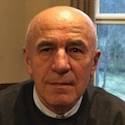
Copyright (c) 2020 by Mirsad Kulovic. All rights reserved. Mirsad Kulovic was born in Bosnia and Herzegovina. He was a professor of transportation engineering at the University of Sarajevo. He found himself outside Sarajevo at the beginning of its siege. Unable to return home, he immigrated to the United States in 1993. He has two daughters and three grandchildren and lives in Nashville with his wife, Sevala.
